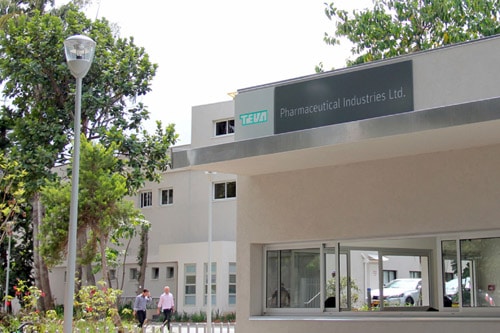
European regulatory advisors have recommended approval of Teva Pharmaceutical’s generic version of Astellas’ transplant rejection treatment Advagraf.
The Israeli generics manufacturer’s macrolide immunosuppressant medicinal Tacforius (tacrolimus) received a positive opinion from the Committee for Medicinal Products for Human Use (CHMP) after demonstrating a “satisfactory quality” bioequivalence of its reference product.
A prophylaxis treatment, Tacforius is now on course for full European approval for adults who have undergone a kidney or liver tissue graft and who are resistant to treatment with other immunosuppressives.
The CHMP’s latest meeting also saw six line-extensions recommended for European approval.
AstraZeneca received a positive opinion for an extension to its glucose-lowering injectable Bydureon (exenatide). This would allow its use in combination with basal insulin, where the therapy in use, together with diet and exercise, does not provide adequate glycaemic control.
The company also received a positive opinion on the extension of its breast cancer drug Faslodex (fulvertrant), which has been recommended to use as a monotherapy for oestrogen receptor positive, locally advanced or metastatic breast cancer in postmenopausal women.
The committee also recommended that Faslodex could be used in combination with Pfizer’s breast cancer drug Ibrance (palbociclib) to treat hormone receptor positive, human epidermal growth factor receptor 2-negative locally advanced or metastatic breast cancer in women who have received prior endocrine therapy. The combination can also be used in pre- or perimenopausal women combined with a luteinising hormone.
Meanwhile, Merck Sharp & Dohme (MSD) also received an extension recommendation for Cubicin (daptomycin), an injectable antibiotic for adults and paediatric patients with staphylococcus aureus bacteraemia (SAB).
The treatment, which was only used when patients were associated with right-sided infective endocarditis (RIE) or complicated skin and soft-tissue infections (cSSTI), has now been recommended to treat adults with RIE or cSSTI in the case of bacteraemia. Additionally, the committee recommended that paediatric patients with cSSTI could also take the drug in the case of bacteraemia.
Finally, both Roche and Janssen got the nod for wider licences for Pegasys (peginterferon) and Zytiga (abiraterone acetate), respectively.
Hepatitis B drug Pegasys has now been recommended to treat non-cirrhotic paediatric patients who are HBeAg-positive CHB with evidence of viral replication and persistently elevated serum ALT levels.
While Zytiga has been recommended to treat newly diagnosed high-risk metastatic hormone sensitive prostate cancer (mHSPC) in adult men in combination with androgen deprivation therapy.




